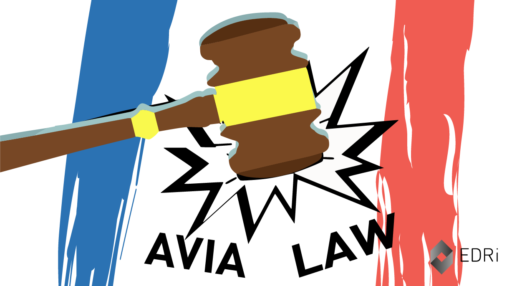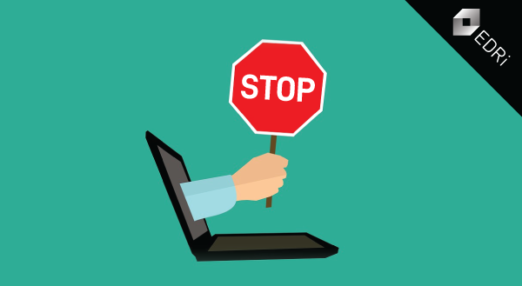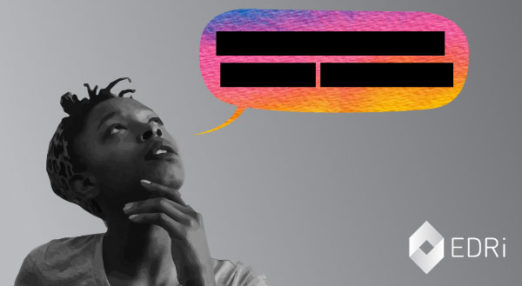hate speech
Filter by...
-

Why Facebook’s proposed hate speech policy on Zionism would only add fuel to the fire
Pressured to combat surging hate speech and anti-Semitism on its platform, Facebook is looking into how it should moderate the use of the word “Zionist,” and whether to add the term as a protected category under its hate speech policy. EDRi's member Access Now doesn’t think that is a good idea, particularly given Facebook’s inability to strictly adhere to human rights principles in its content moderation practices.
Read more
-

French Avia law declared unconstitutional: what does this teach us at EU level?
On 18 June, the French Constitutional Council, the constitutional authority in France, declared the main provisions of the “Avia law” unconstitutional. France’s legislation on hate speech was adopted in May despite being severely criticised from nearly all sides: the European Commission, the Czech Republic, digital rights organisations and LBGTQI+, feminist and antiracist organisations.
Read more
-

France’s law on hate speech gets a thumbs down
France’s draft legislation on hate speech (also called the “Avia law”) received a lot of criticism. The draft law was approved in July 2019 by the French National Assembly and will be examined by the Senate in December. It would oblige platforms to remove flagged hateful content within 24 hours or face fines. The Czech […]
Read more
-

A privately managed public space?
Our “public spaces” online where we meet each other, organise, or speak about social issues, are often controlled and dominated by private companies (platforms like Facebook and YouTube). Pushing platforms to decide which opinions we are allowed to express and which not is not going to solve major problems in our society. The EU rules […]
Read more
-

Hate speech online: Lessons for protecting free expression
On 21 October, David Kaye – UN Special Rapporteur on the promotion and protection of the right to freedom of opinion and expression – released the preliminary findings of his sixth report on information and communication technology. They include tangible suggestions to internet companies and states whose current efforts to control hate speech online are […]
Read more
-

E-Commerce review: Safeguarding human rights when moderating online content
This is the fourth and last blog post in our series on Europe’s future rules for intermediary liability and content moderation. You can read the introduction here. In our previous blog posts on the upcoming E-Commerce review, we discussed examples of what can go wrong with online content regulation. But let’s imagine for a moment […]
Read more
-

E-Commerce review: Mitigating collateral damage
This is the third article in our series on Europe’s future rules for intermediary liability and content moderation. You can read the introduction here. Asking social media and other platform companies to solve problems around illegal online content can have serious unintended consequences. It’s therefore crucial that new EU legislation in this field considers such […]
Read more
-

More responsibility to online platforms – but at what cost?
In the European Commission’s internal note published by Netzpolitik.org on 16 July 2019, the Commission presents current problems around the regulation of digital services and proposes a revision of the current E-Commerce Directive. Such a revision would have a huge impact on fundamental rights and freedoms. This is why it’s crucial for the EU to […]
Read more
-

E-Commerce review: Technology is the solution. What is the problem?
This is the second article in our series on Europe’s future rules for intermediary liability and content moderation. You can read the introduction here. When it comes to tackling illegal and “harmful” content online, there’s a major trend in policy-making: Big tech seems to be both the cause of and the solution to all problems.
Read more
-

Fighting online hatespeech: An alternative to mandatory real names
The internet facilitates debates: People around the globe can connect at almost zero cost, and information and opinions that would otherwise hardly be noticed can go viral through social media. However, services like Twitter and Facebook can also be used for targeted defamation. Especially people who belong to minorities or endorse views outside the mainstream […]
Read more
-

E-Commerce review: Opening Pandora’s box?
The next important battle for our rights and freedoms in the digital sphere is looming on the horizon. While the public debate has recently focused on upload filters for alleged copyright infringements and online “terrorist” content, a planned legislative review will look more broadly at the rules for all types of illegal and “harmful” content.
Read more
-

Austria: New “responsibility” law will lead to self-censorship
Shortly after the EU gave green light to upload filters, two laws were proposed in Austria, with the alleged goal of tackling online hate speech, that rang the alarm bells.
Read more
